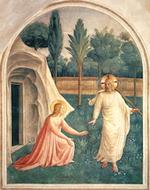Catechism of the Catholic Church
Share this paragraph of the Catechism:
Paragraph:
2384 Divorce is a grave offense against the natural law. It claims to break the contract, to which the spouses freely consented, to live with each other till death. Divorce does injury to the covenant of salvation, of which sacramental marriage is the sign. Contracting a new union, even if it is recognized by civil law, adds to the gravity of the rupture: the remarried spouse is then in a situation of public and permanent adultery:
If a husband, separated from his wife, approaches another woman, he is an adulterer because he makes that woman commit adultery, and the woman who lives with him is an adulteress, because she has drawn another's husband to herself. 178
Move forward or back a paragraph: Previous | Next
Where this paragraph appears in the Catechism:
TABLE OF CONTENTS
» |
PART THREE: LIFE IN CHRIST |
» |
SECTION TWO: THE TEN COMMANDMENTS |
» |
CHAPTER TWO: YOU SHALL LOVE YOUR NEIGHBOR AS YOURSELF
|
» |
ARTICLE 6: THE SIXTH COMMANDMENT |
» |
IV. OFFENSES AGAINST THE DIGNITY OF MARRIAGE |
Notes for the above paragraph:
178 St. Basil, Moralia 73, 1: PG 31, 849-852.
English Translation of the Cathechism of the Catholic Church for the United States of America © 1997, United States Catholic Conference, Inc.






